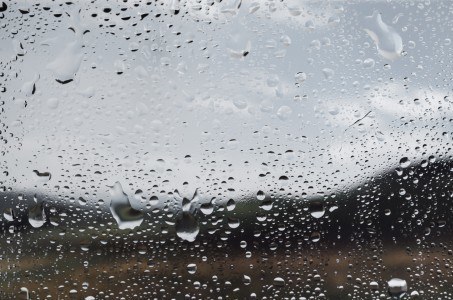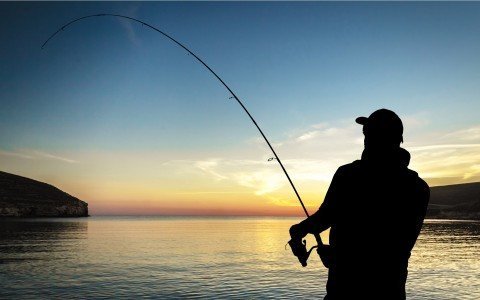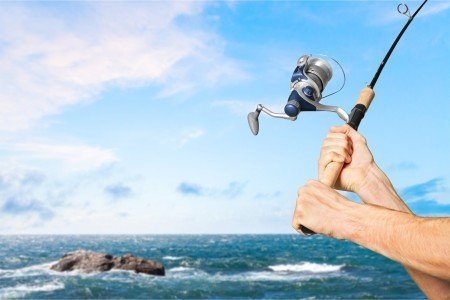- You are here:
- Home »
- Blog »
- Guides and tips
- » How To Fish After A Heavy Rain
How To Fish After A Heavy Rain
I like to fish quite often. I plan fishing trips in advance, and sometimes the weather is not always predictable or cooperative. There have been many fishing trips that I have had to cancel due to bad weather. Though by knowing how to respond to some weather conditions you can reduce the number of unsuccessful trips.
One condition that will need special considerations when fishing is heavy rain. A heavy rain can change the way that you fish, and knowing how to fish after a heavy rain can give you more great tools in your box for great successful fishing outings.
How to fish after a heavy rain
More to do with the front that the rain
One thing you need to understand about fishing after a spot of rain is that it may not be about the rain itself. The rain passing is an indication that a front has passed through the area. The success of your fishing trip may be more reliant on the front passing through.

It may be more important to study the weather and keep track of fronts passing through your fishing spots. You may not always be able to count on the rain to let you know where the fronts are.
After the rain
Once the storm has passed, there is often a period of sun or brightness. The brightness after the overcast and rain makes fish tend to swim tighter to cover away from the bright conditions that happen after the overcast of the rain.
If you are out fishing during this bright period after the overcast conditions have passed, you will have the most success working your lures closer to the cover. Put your lures where the fish are, and they will be more likely to bite.
If I know there is going to be heavy rain, I like to plan my fishing to find a good bit of cover where I know the fish are going to gather away from the sudden onset brightness.
Pay attention to the temperature
There may be more than one different ways to approaching fishing after rain. The difference may be based on the temperature of the rain. If you are fishing after a warm spring rain, you may find that the fish have been turned on much faster. This is because the warm rain will heat the water faster than almost anything else can. The warm rain will rapidly warm the waters and make the fish far more active and a bit easier to engage. So expect a bit of an easier time if you are going out after a nice warm rainfall.

On the other hand, a cold rain can shut the fish down. As much as the warm rain will warm the waters, a chilly rain with cool the waters right down. When the temperature of the water drops rapidly, you will notice a reduction in fish activity. They will be far less likely to be easy to engage. So if you notice a chilly rain before your fishing trip, expect it to be a more of a slow fishing trip with far less action to speak of.
I am sure that you can imagine that it is preferred to fish after a warmer rain than after a cold rain. I have gone fishing after both, and you would be surprised at the difference of activity between just after a warm rain and after a cold rain.
Intensity
Another factor to take into consideration is the intensity of the rain. A very heavy rain will cause lots of runoff. I would recommend that your check around your normal fishing spots to make sure that areas that were once clear have not become too muddy from the excess runoff. If the area has become overly muddy from the rain runoff, you may have a hard time finding the fish where you normally would.
Search around the muddy area and find the edges where the muddy portions meet the clear areas. This is where you should start to look for where the fish may have gathered. The fish have likely moved from the muddy areas around the onset of the clearer water to feed so that you will have pretty good luck in these areas.
If the volume of the rain was high enough, you might also notice a rise in the water level. If the water does rise due to the rain, you may find the fish making a push toward the banks. The higher the water levels, the better luck you will have. If the water drops, the fish will head for the deeper areas, making fishing a bit more difficult. This is why after a heavy rain you can find some good fishing closer to the bank.
Research
In the end, it is best to know your fishing spot. Know how your favorite lake responds to heavy rain, and where the muddy spots are and how much you can expect the levels of the water to rise. Take note of the coves, and shady spots that may be hiding a group of fish. Get to know your lake. I have studied my favorite lakes and know all the best spots to set up in different conditions, and after a hard rain, I know exactly where to head to get the best results. Research is key.
Let it rain
After a rainfall, fishing conditions can change. It is important to know how to respond to the conditions for the best possible fishing outing.
- If it’s sunny after rain, stick near cover
- If the rain was warm fish will be more active
- Fish will be less active if the rain was cold
- If the rain was intense, find the edge of muddy areas where fish gather to feed.
- If water levels rose, fish may be near the bank
- Fish are out deeper during low water levels
- Research your lake and know how it reacts to rain.
I hope this guide helps you with everything you will need to have successful and fun fishing trips after a heavy rain. If you have any comments or questions, feel free to share and let us know about your post rain fishing advice.

